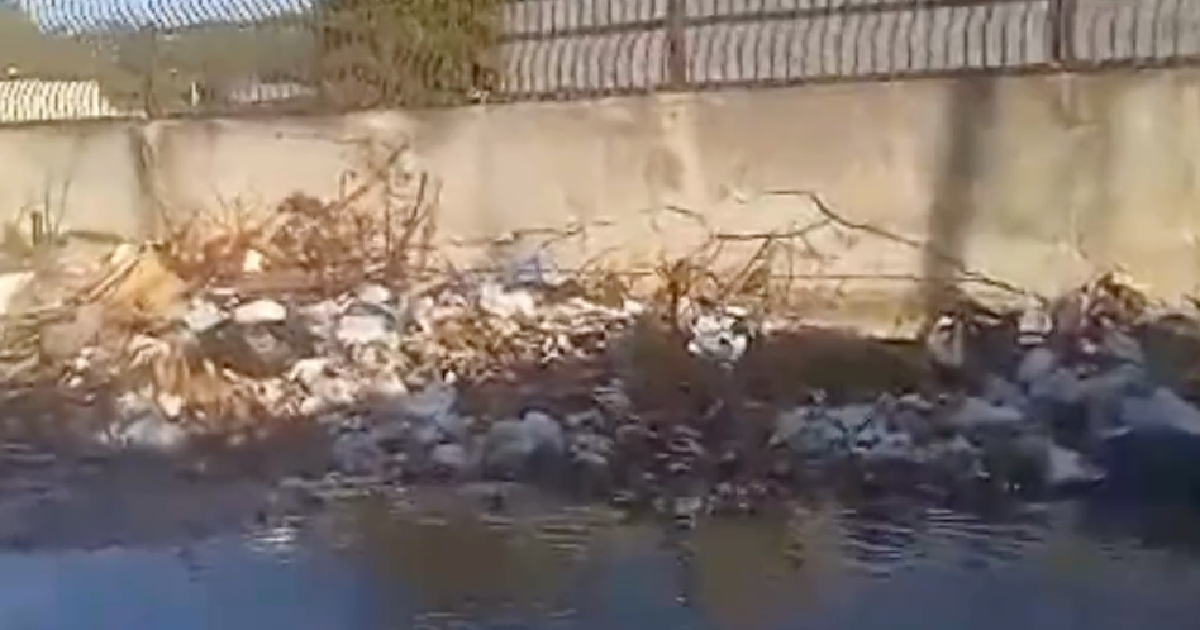
While the Communal Services of Havana faces a serious crisis, several areas of the Cuban capital are flooded with trash, such as a dump adjacent to the Frank País Orthopedic Hospital in the La Lisa municipality.
The unsustainable situation was reported through the digital page of Martí Noticias, which reveals the chaos in the area, the complaints of the residents, and the surprising response from the authorities.
"There is a huge landfill, and it has been like this for months," revealed activist Lucinda González to the media.
"That is full of cockroaches, mosquitoes, rats... And all of that reaches the rooms,” he added, while the medium published a more than illustrative video on its page on the social network Facebook.
The former employee of the medical institution stated that she has personally raised the complaint to the local government and the situation remains the same. But the worst part is that the Community Services company blames the residents for being "irresponsible."
Similarly, the report presents the perspective of Antonio Font, a resident of Centro Habana.
"It is becoming increasingly dangerous for the health of Havana residents due to the accumulation of garbage that is piling up in the historic center of the capital."
"Although it is in all of Havana, it's incredible that they don't collect the trash, they don't have the resources to pick it up, and wherever you go there are mosquitoes, insects, cockroaches, mice, it's horrible," stated Font.
After the breakdown of dozens of trucks donated by Japan, the Provincial Directorate of Community Services of Havana has a low availability of equipment for waste collection.
According to a report published in the official newspaper Granma, the entity has only 57 percent of the fleet available, while the capital generates 30,108 cubic meters of waste daily.
It should be noted that in 2023 the territory produced 23,814 cubic meters, but at that time there were Japanese donations that, between 2018 and 2019, provided Cuba with 100 collection trucks.
Additionally, the Asian territory delivered 40 dump trucks, 25 skid steers, 50 motorized direction mowers, 25 chainsaws, and 15 trucks intended for the control and oversight of processes.
Similarly, the most important force, Hino brand trucks, began to experience breakdowns in parts, components, and aggregates, with no possibility of finding swift solutions.
Currently, almost half of those devices are out of service, and there is little or nothing that can be done: "The supplying company left the island, and due to the blockade, it is now impossible for them to sell the supplies for their repair, either directly or indirectly," states the news article.
In this regard, the entity pointed out that today only 45% of the tractors and 51% of the dump trucks can work, a fleet unable to collect waste in a city of nearly two million inhabitants, according to recently published figures.
The fuel crisis, the diversion of resources, and the lack of workers are also hitting hard: "The management position is vacant or in the process of being filled in Arroyo Naranjo, Cerro, Centro Habana, San Miguel del Padrón, and Marianao, almost all municipalities with a complex situation," stated the head of the Inspection's Supervision Group of the Provincial Government of Havana, Miguel Gutiérrez Lara.
In light of such a scenario that extends nationwide, the proliferation of filth and the increase in diseases during the summer, such as vomiting and diarrhea caused by flies; leptospira associated with mice; and dengue, zika, chikungunya, and Oropouche can be understood, according to the statements of the epidemiologist from the Julito Díaz National Rehabilitation Hospital, Belkis Aracelis Barrera.
What do you think?
COMMENTFiled under: